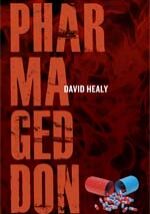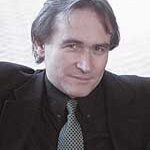In 701 B.C. the Assyrian empire was in its ascendancy. It had already vanquished the kingdom of Israel to the north including the capital at Samaria. It then prepared an assault on Judah and its capital at Jerusalem.
But in one of those significant events that changes the course of world history, Assyria was repelled. Jerusalem was saved until 586 B.C. when the Babylonians sacked the city, forcing its leadership class into exile.
Henry Aubin, in a major feat of scholarship, determines that Jerusalem was aided by a Kushite army from Africa which had marched northeast from the Nile valley. While the Bible attributes the Assyrian retreat to an angel and secular commentators cite pestilence, Aubin, in a meticulously documented work, demonstrates that an alliance with the African nation of Kush bolstered Jerusalem’s defences.
Kush, also known as Nubia, was located in what is now southern Egypt and northern Sudan. A monarchy that existed for more than 1000 years, from 900 B.C. to A.D. 350, Kushites held sway over Egypt from 712 B.C. to about 660 B.C. Of Egypt’s 31 dynasties, this, the 25th Dynasty, is the only one that all scholars agree, was black.
The commander of the Kushite expeditionary force was Taharqa (or as the Bible calls him Tirhakah). This Kushite prince, who had his own interests in halting Assyrian expansion, likely caught the aggressors by surprise as they prepared their siege of Jerusalem.
Aubin offers a thrilling military history and a stirring political analysis of the ancient world. He also sees the event as influential over the centuries.
The Kushite rescue of the Hebrew kingdom of Judah enabled the fragile, war-ravaged state to endure, to nurse itself back to economic and demographic health, and allowed the Hebrew religion, Yahwism, to evolve within the next several centuries into Judaism. Thus emerged the monotheistic trunk supporting Christianity and Islam.

Praise for Pharmageddon:
“Neuropharmacologist David Healy’s exposé of the pharmaceutical industry’s control of modern medicine is a chilling, essential read.” MacClean’s Magazine(Named a bestnon-fiction book of 2012)
“This meticulously documented book makes extraordinary claims with far-reaching intellectual and practical ramifications. It is the most powerful critique of the contemporary medical-industrial complex that I know.â€
Andrew T. Scull, author of Hysteria and Madness: A Very Short Introduction
“This book shines a bright light on the pharmaceutical industry (and American health care) in the same way that Silent Spring called out the chemical industry and Unsafe at Any Speed called out the automobile industry. Pharmageddon is Healy’s most important book to date. It will make a real contribution towards healing our sick system of pharmaceutical-driven medicine and helping doctors provide better care for their patients.â€
Elizabeth Siegel Watkins, author of The Estrogen Elixir and On the Pill
“In this startling book, David Healy argues that ‘evidence-based’ medicine – and a healthy dose of corrupt science – has led modern medicine off a cliff. His book is provocative, challenging, and informative, and ultimately it serves as a powerful manifesto for rethinking modern medicine.â€
Robert Whitaker, author of Anatomy of an Epidemic: Magic Bullets, Psychiatric Drugs, and the Astonishing Rise of Mental Illness in America
“Like a good detective story, Pharmageddon weaves together the history of modern medicine, the evolution of clinical trials and statistical analyses, changes in international patent laws, privatization of clinical research, blurring of the line between academics and industry, and the enabling role of medical journals. If you want to learn how to protect yourself (or your patients) from medical commercialism and how medical practice can be redirected back towards its true mission, this book is a must read.â€
John Abramson, author of Overdosed America

David Healy, who studied at University College Dublin, and the University of Cambridge, England, is currently a Professor of Psychological Medicine in Cardiff University, Wales, and a Visiting Professor at the University of Toronto. He is the author of 15 books, including The Antidepressant Era, and The Creation of Psychopharmacology from Harvard University Press, The Psychopharmacologists Volumes 1-3, and Let Them Eat Prozac from New York University Press.
University of California Press
World English rights March 2012
Pharmageddon
Pharmageddon has arrived. The large pharmaceutical companies have hijacked healthcare and the results are alarming.
Healy, who was the first to draw attention to the now well-publicized suicide-inducing side effects of many antidepressants, presents a searing indictment of problems in health care that are leading to a growing number of deaths and disabilities. Also, often culpable are well-meaning physicians who under the sway of drug companies diagnose for risks using “numbers†handed to them.
Only a small percentage of drugs now target disease. The bestselling drugs are “lifestyle†or “risk management†drugs: antidepressants, cholesterol-lowing statins, blood-sugar-lowering hypoglycemics, and treatments for osteoporosis and sexual dysfunction. Moreover, many newer generations of drugs under patent are often less effective than earlier versions.
The survival of pharmaceutical companies is tied to the development of blockbuster drugs, so that they must overhype benefits and deny real hazards. He is also critical of industry-controlled drug trials and the corrupted “evidence-based medical system.â€
These trends have basically ended the possibility of universal health care in the United States and elsewhere around the world. Dr. Healy concludes with suggestions for reform, which must come soon. Read Publisher’s Weekly’sreview for Pharmageddonhere.